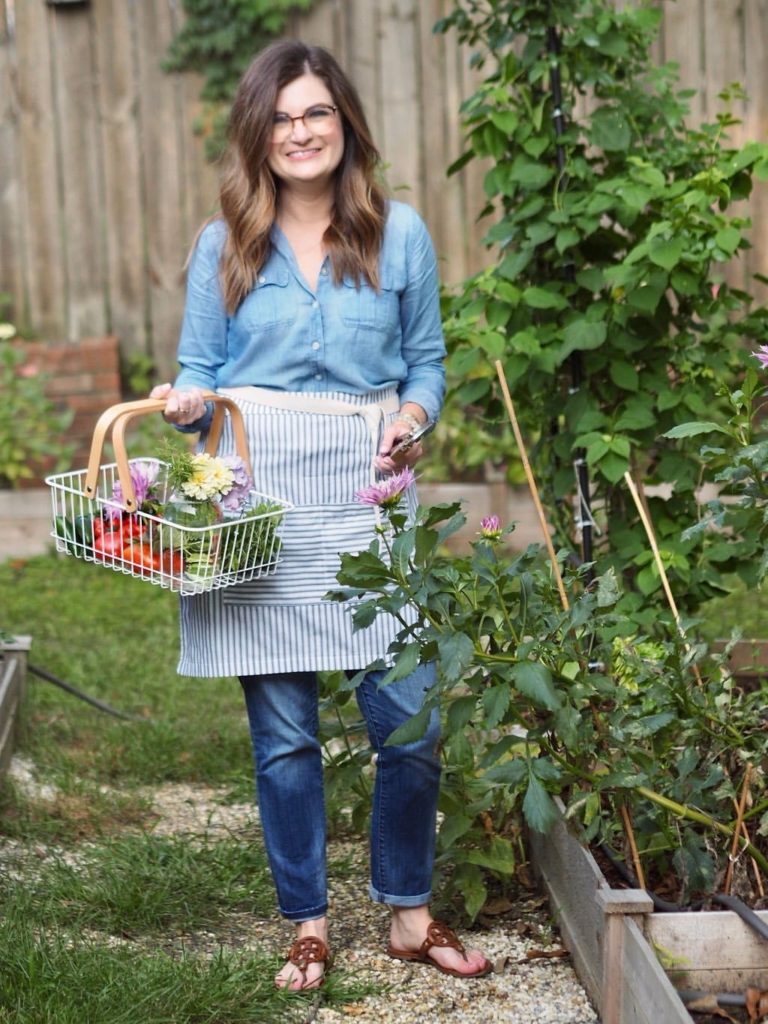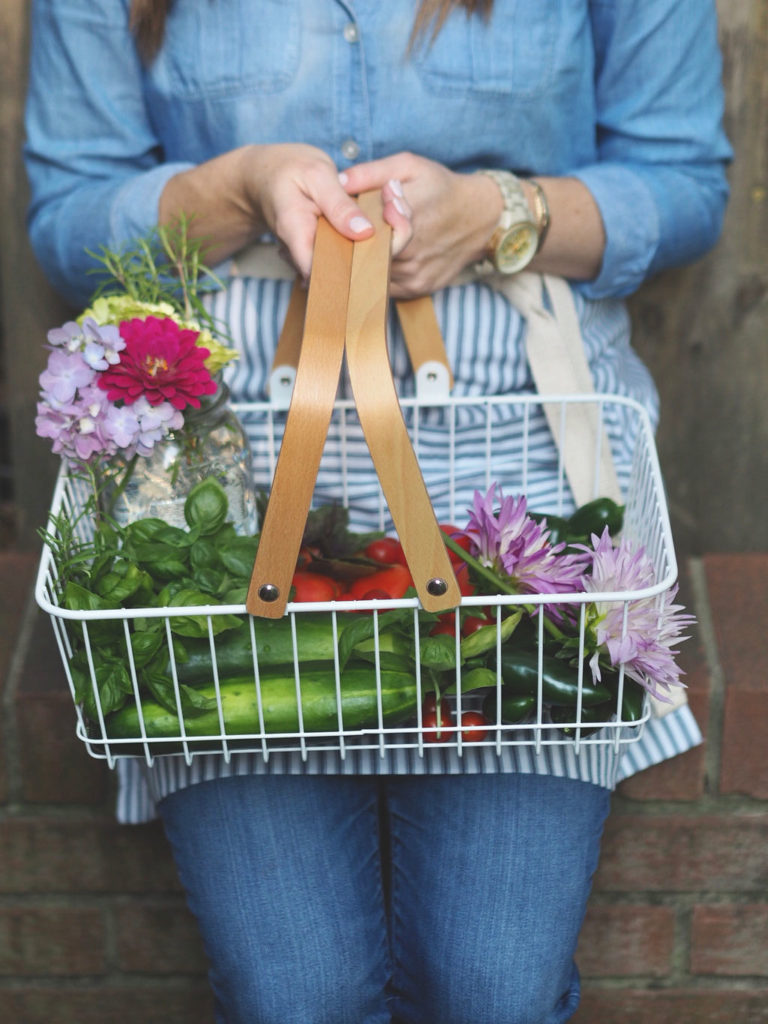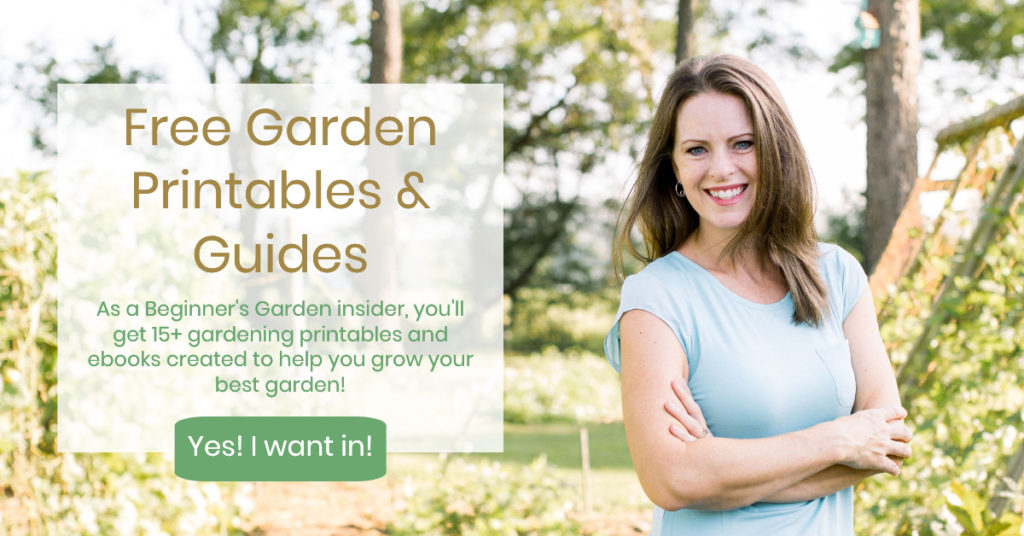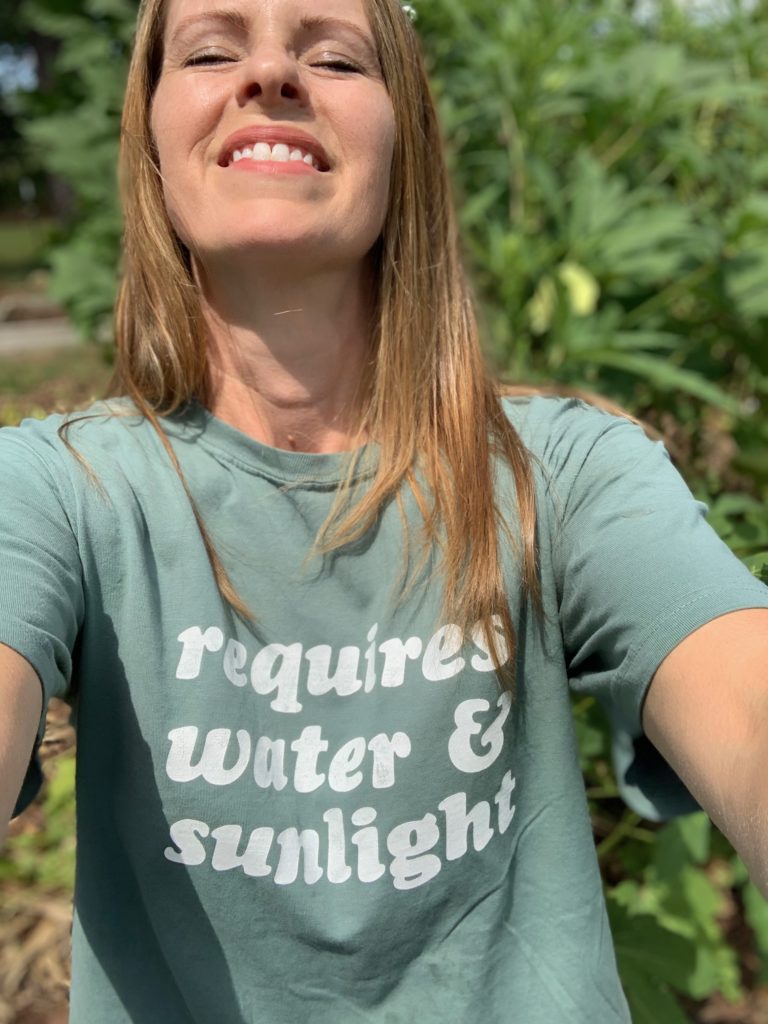4 Ways to Nurture Your Mental Health in the Garden’s Off-Season
While most of us start gardening to feed our families more organically or economically, I think any seasoned gardener, or those who have even just started, will tell you that the benefits that come from tending the garden far exceed those you bring to your family table.
In a recent conversation I had with licensed counselor Whitney Caves, we discussed the benefits that gardening can have on our mental health at all times of the year. But especially during the offseason, gardeners can use a bit of a mental boost. Take a listen to our entire conversation below or continue reading.

Ways to Boost Mental Health
Is it possible to feel “normal” during a pandemic? Most people would tell you no, but if you have been gardening for more than a season or two, simply walking in your garden in the spring of 2020 brought you some kind of grounding in normalcy.
I have really clung to my garden this year and it’s brought me peace in a time of such uncertainty and sadness. While we know that what we produce in the garden is good for our bodies, a lot of us don’t realize it’s also good for our minds.
It’s so good to get outside, to breathe in the air, to look at the sky, and to see what good can grow in the garden. The chemicals released when we run our hands through the dirt, when we take in the sunshine, and when we dig and plant and sow all lead to positive mental health.

(*links below contain affiliate links, which means if you click through and make a purchase, we will earn a commission at no extra cost to you.)
Identifying Seasonal Affective Disorder
But what about the off-season? The days are shorter, the garden is mostly bare. We may find ourselves just a bit more sluggish and even sad. A lot of people also struggle after the holidays and some are triggered by the holidays, themselves.
Even if we don’t meet the clinical criteria for Seasonal Affective Disorder, we may find ourselves struggling as the days grow shorter and the winter wears on. If you find yourself feeling this way, know you aren’t alone.
This year, too, is just harder with CoVid and the stress surrounding it. People have had to be isolated and they aren’t able to interact with others the way they normally would. I believe that regardless of where we find ourselves on the continuum of seasonal sadness, it very well may hit harder in the 2020-2021 winter.

When Should You Seek Medical Help?
It’s common for most people in the fall and winter to feel lower energy and a lack of motivation. Many of us have to learn to push through it and take care of ourselves as best we can. But when does the persistent sadness become something that needs professional attention?
It becomes a deeper issue if those feelings of sadness last all day and every day, the motivation to do things we once always loved is no longer there, our sleep pattern is interrupted (this can be we can’t sleep at all when we once could or we sleep all day long for no reason), we’ve lost interest in things, the feelings of hopelessness persist, or we begin thinking of self-harm. This is when we want to seek help from a mental health professional.
But what if our struggles don’t rise to those levels? Do we just grin and bear it until spring? No. There are steps we can take during the garden off-season to lift our spirits through the fall and winter.
What Can We Do To Stay Mentally Healthy In Winter?
Garden Planning. A key element in mental health is planning. If you know you are prone to get down in the winter, plan for it. If you love to garden, working on dreaming and planning for next season’s garden. At the very least, grab yourself a garden planner to work on during the winter when those blues start to creep in.

Connect with other gardeners. While we may not be able to leave our homes during winter due to snow, Covid, sickness, or whatever other reason, there are still wonderful resources that allow us to connect with like-minded gardeners online. If you’ve not joined our Beginner’s Garden Facebook Group, this is a great resource!
Sunshine. Find some kind of sun! We know that Vitamin D is good for us. In the winter, it’s sometimes an instinct to sit in the dark because it’s dark outside. Open your curtains, turn on your lights, go outside! Even if the sun isn’t shining, being outside is SO good for you!

Take a walk. Plan it into your day. If we plan for our walks, we are more likely to do it. Serotonin released into our brains during non-vigorous exercise outside looking at the beauty in our garden is so good for our mental health. Just a 20-minute walk outdoors can make a huge difference in how you feel.
You Aren’t Alone
I just wanted to say, again, that you aren’t alone in this journey if you find yourself faced with any kind of depression, seasonal affective disorder, or any other mental health issue. If you need to seek the help of a medical professional, don’t wait.
What do you do to nurture your mental health in the garden’s off-season? Comment with your ideas!
Stay well and inspired both in body and mind. And remember, spring is coming.
Start planning that 2021 garden now. It’s never too early. Start here to help start your garden planning right.
Do you get overwhelmed with garden planning?

Subscribe here for my best tips to plan your garden in just 7 days -- all for FREE.
Plus, I'll send you my "In the Garden E-mail" on Fridays, periodic updates on garden resources relevant to you, and you'll receive access to my entire bank of free garden downloads!
You are also agreeing to our privacy policy.
